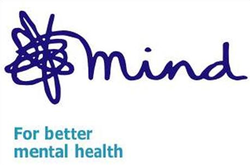
I can, sort of, understand that. I don't think her point was hugely well expressed but it seems that she's not tired of hearing about depression per se, so much as seeing it used as a hook to sell celebrity memoirs or flog their latest product. No matter how tenuous the link to the subject matter.
But, like I said, not well expressed. In fact, it might have come across a little like she was saying she was tired of hearing people talk about being depressed, full stop. To the extent that the mental health charity Mind saw her column as an attack on anyone who has the gall to talk about being depressed, and used their twitter feed in a seeming bid to encourage people to attack her for this view - ironically creating a situation where a mental health charity was seen as bullying a prominent writer.
So far, so good. Twitter is a fantastic way of sharing small pieces of information and having snappy conversations, but the character limit can lead to mis-speaking, misunderstanding and confusion. This isn't the first time and won't be the last. Hopefully the addition of some time, thought, and a few more characters in which to examine the issue will smooth waters.
But why did Knight's column hit such a nerve? She was making a particular point about celebrities using an issue that seriously affects others to sell things. But remarks such as "there are people who... still believe that depression is taboo", she frames the discussion in such a way that it sounds as if she thinks depression and similar mental health problems are not taboo anywhere, any more, and would never pose a problem in modern Britain.
Anyone who has had any experience of this is going to immediately compare it to their own memories and experiences. And it’s likely that they will find a jarring mismatch between the experience of talking to people about mental health, and the idea that all of the taboos have been destroyed.
Attitudes have certainly improved, but no matter how friendly the environment in which you live, it's unlikely that it's one in which you can necessarily be completely open about mental health problems. If you've ever had to explain to a teacher, lecturer, boss, family member or friend that you have mental health problems it's likely you have found that, while many people are very good at being sympathetic to the abstract idea of mental illness – or even a celebrity, perhaps backing up Knight’s point – actually dealing with someone they know who has specific problems and needs is a whole different ballgame and one that can cause confusion and resentment.
Hell, even if you choose not to disclose, you might find yourself chatting to some colleagues over lunch as they discuss a "crazy" ex-colleague and her mental health problems. Yesterday I heard someone I like and respect opine, "if you're going to cry at work every day at least cry in the toilet, not at your desk, it makes everyone feel awkward." I felt too awkward to suggest that perhaps the person they were discussing could have benefited from some time off, medication, and/or counselling. Rather than just regular dashes to a locked cubicle.
1 in 4 or 5 people may experience mental health problems, but it's still not a conversation we seem to be comfortable having. People can think they know what depression looks like and how to deal with it because they’ve read about it in a celebrity memoir, but when faced with a friend who hasn’t left their room in three weeks still decide to tell other people that they’re lazy and should pull their socks up and stop whining.
So when a writer says that they see the taboo is broken, but you live with it every day, it's not surprising that the reaction isn't a good one.
Squeamish Louise


 RSS Feed
RSS Feed
